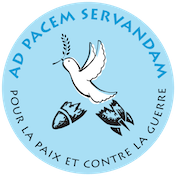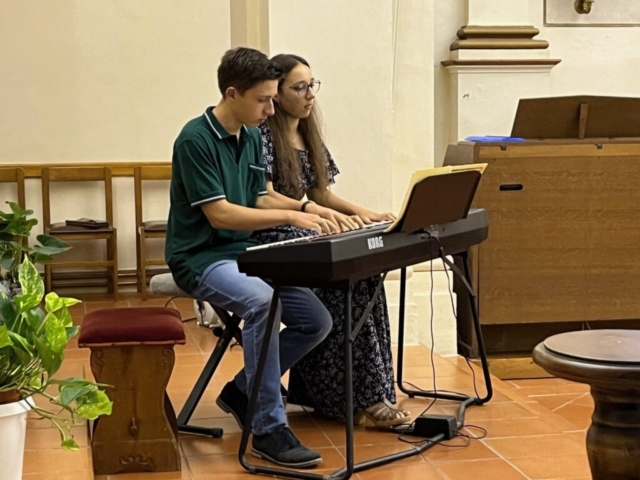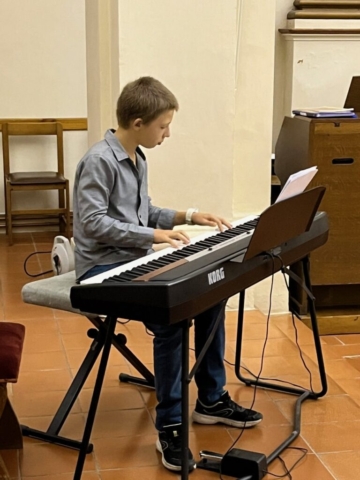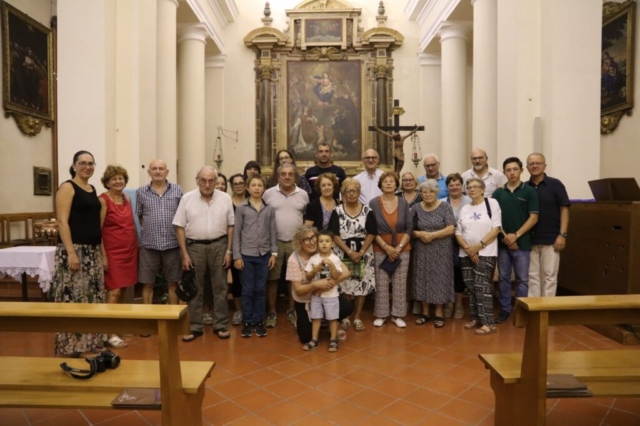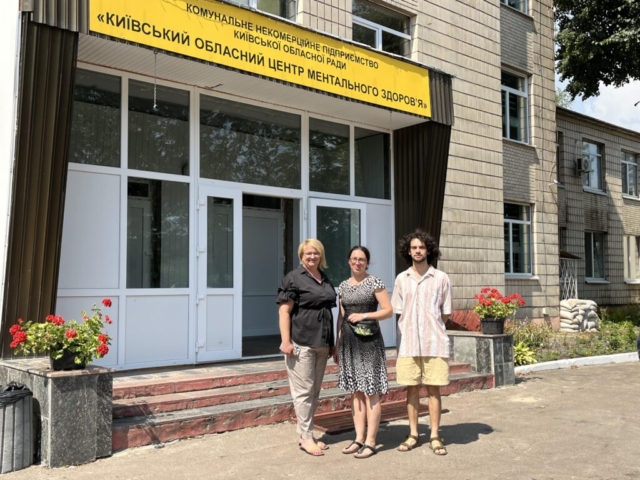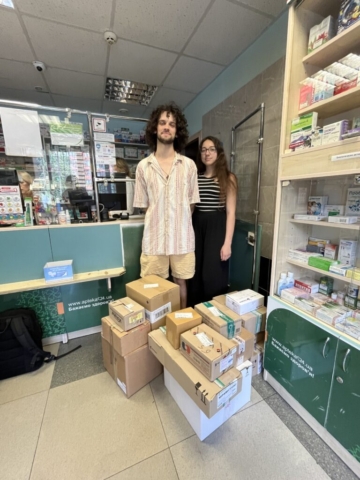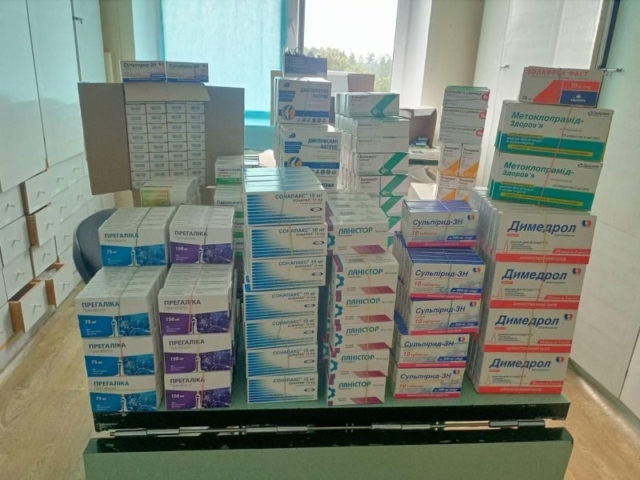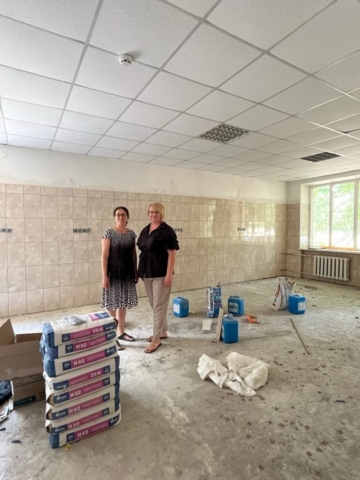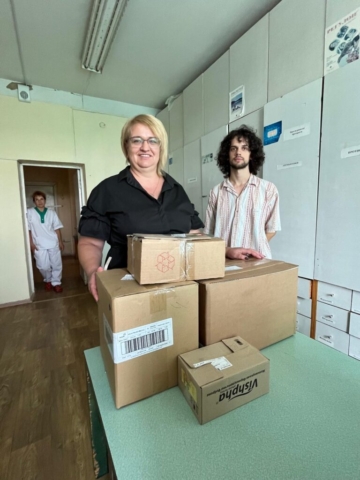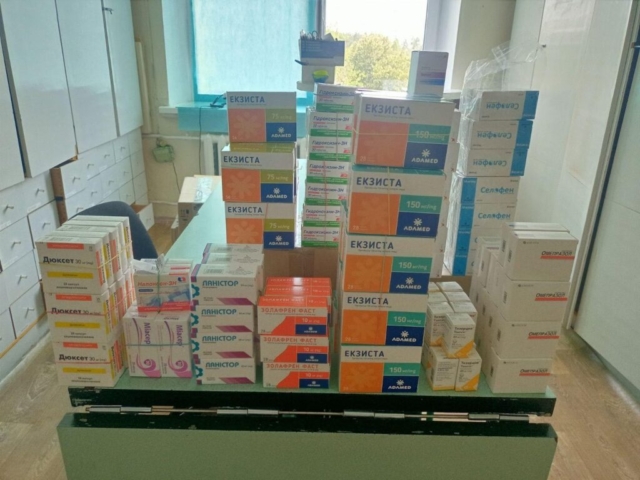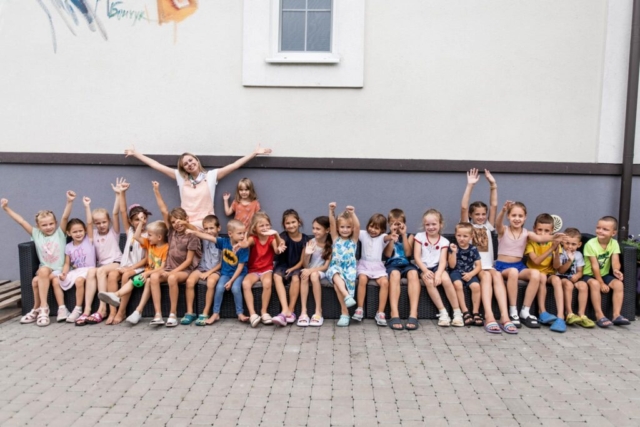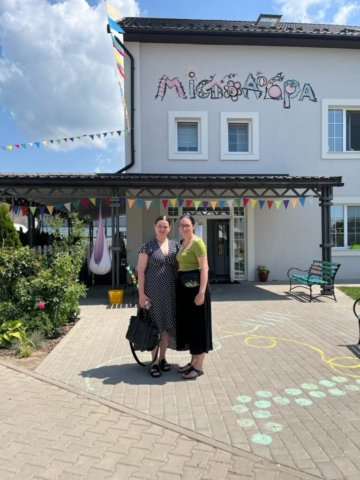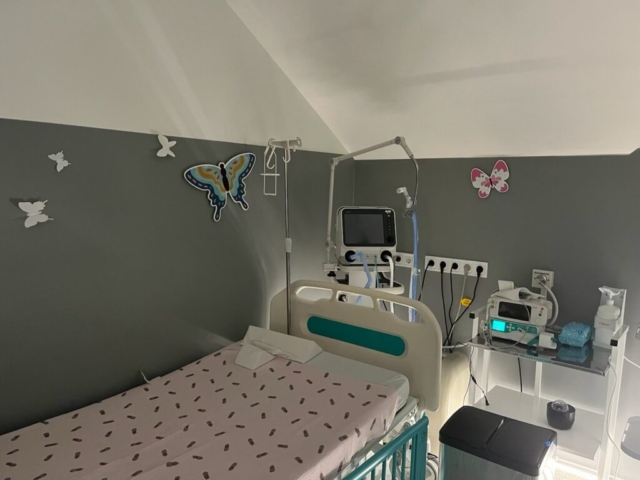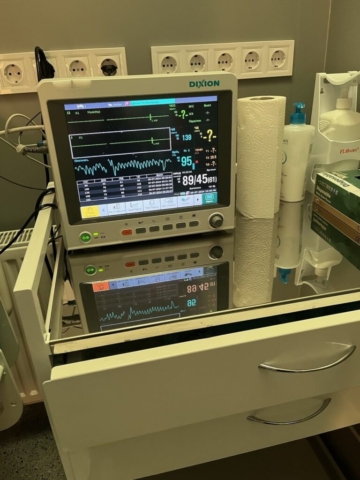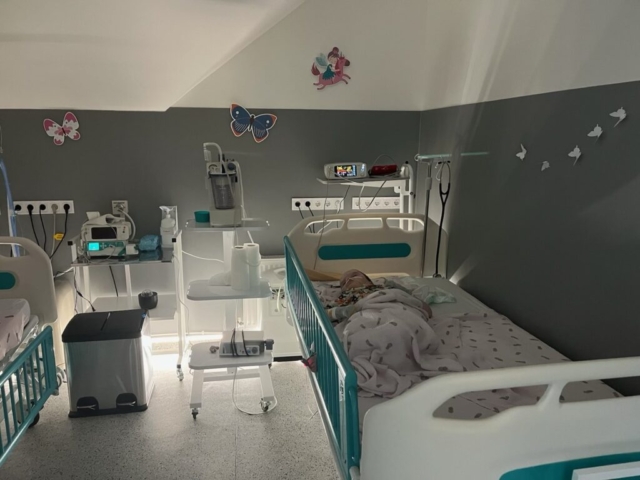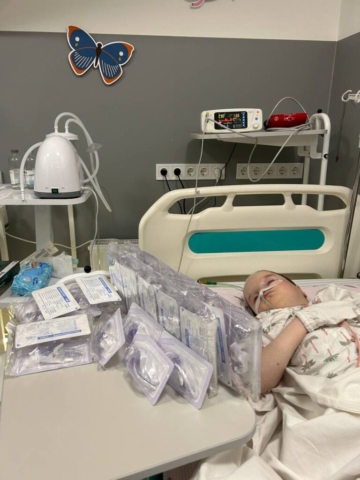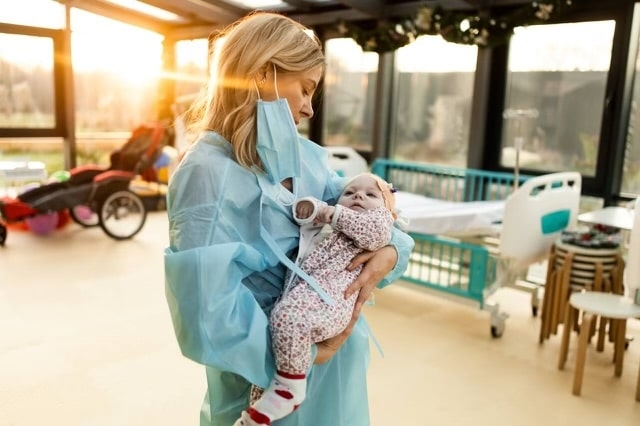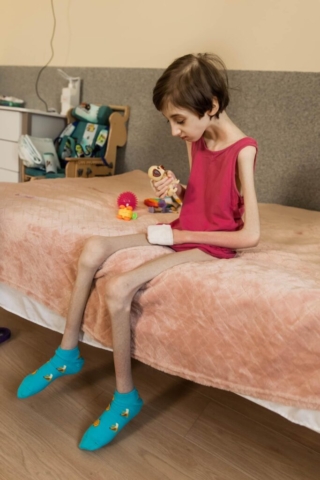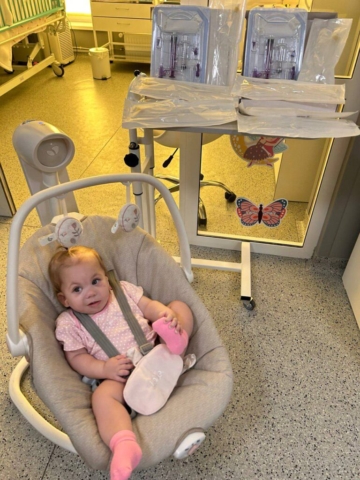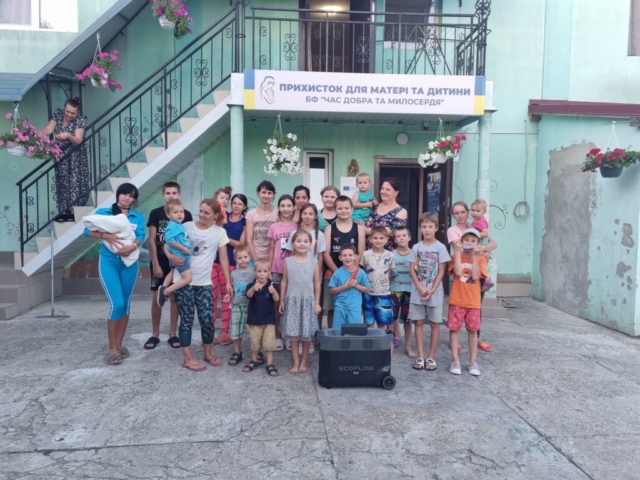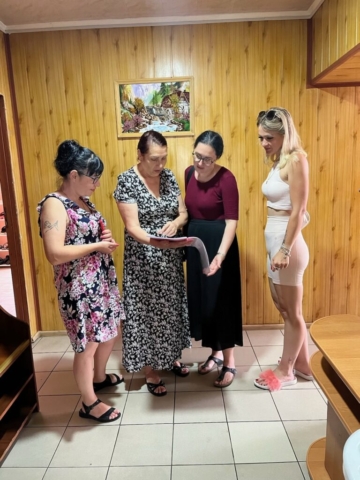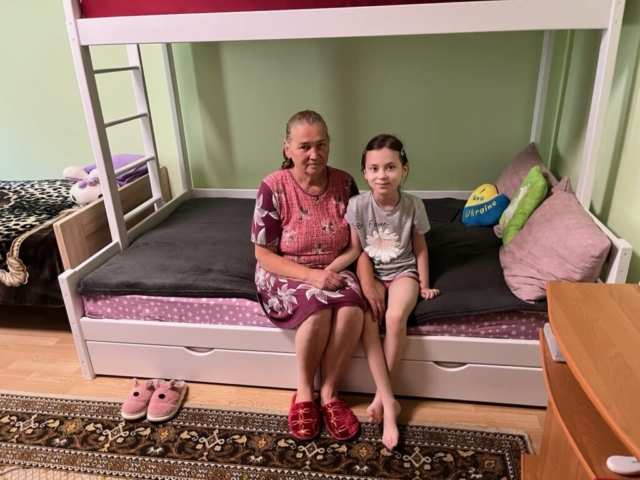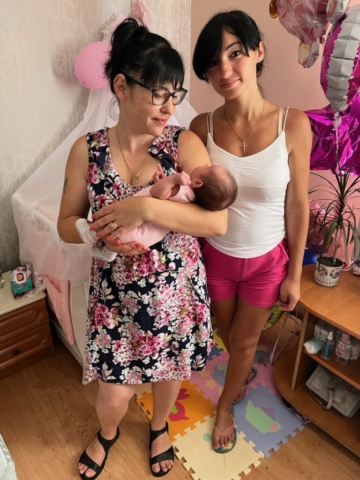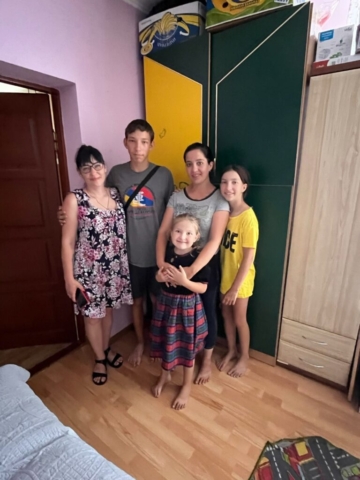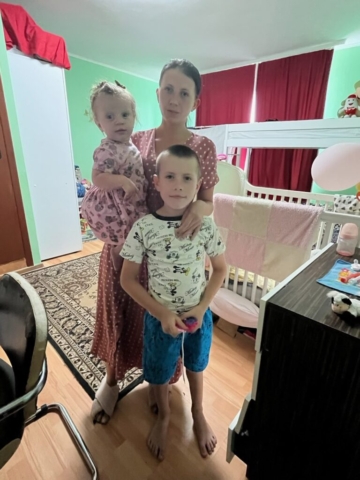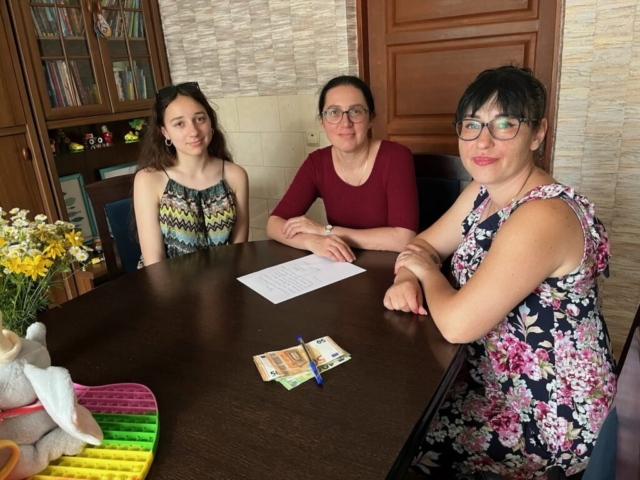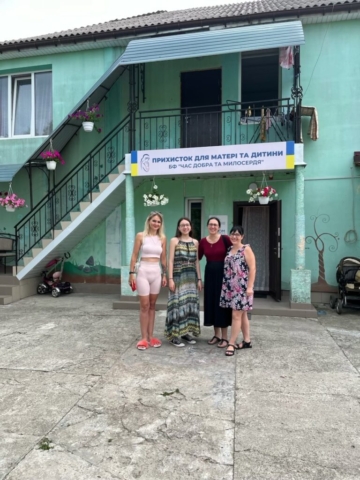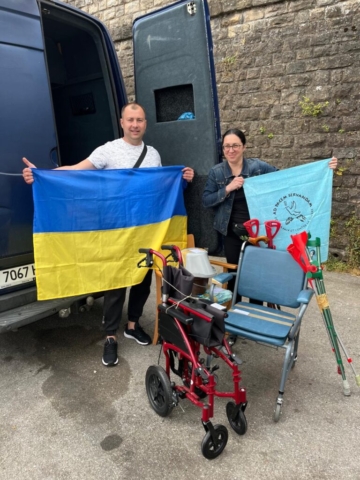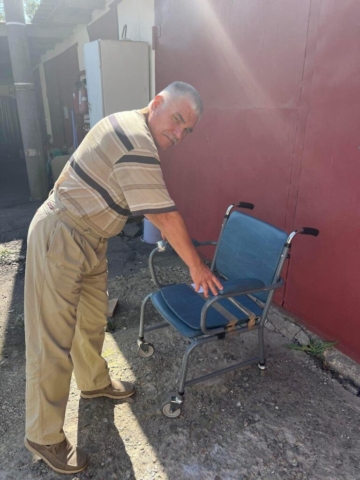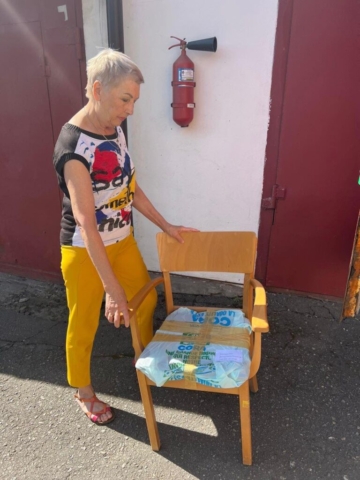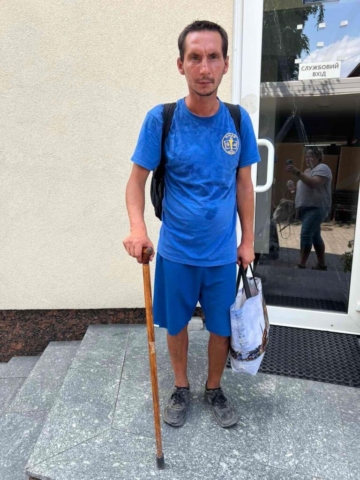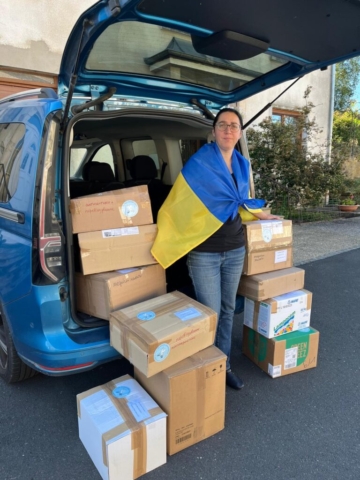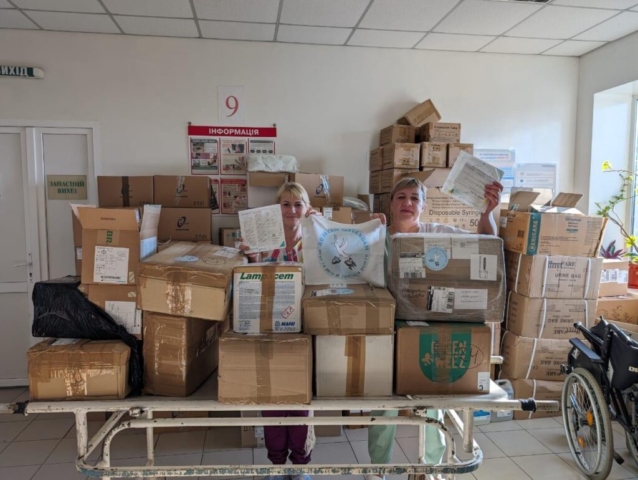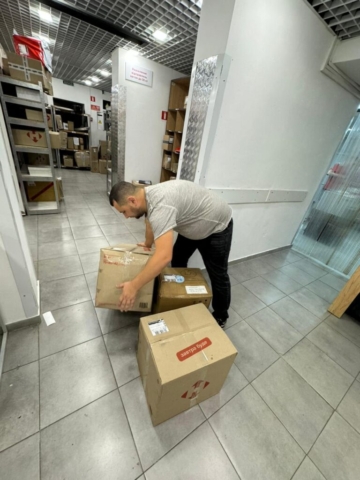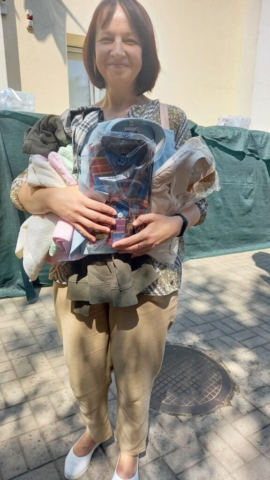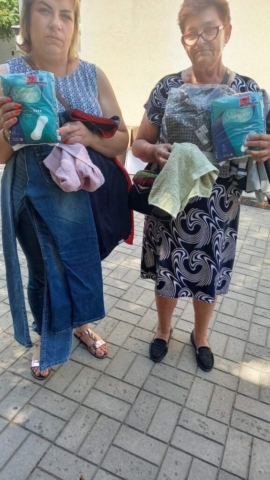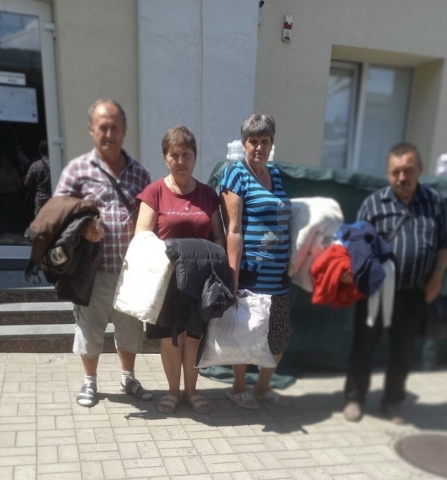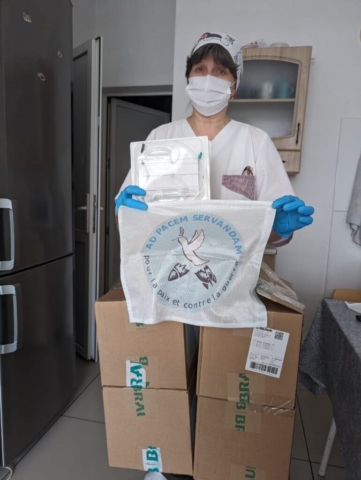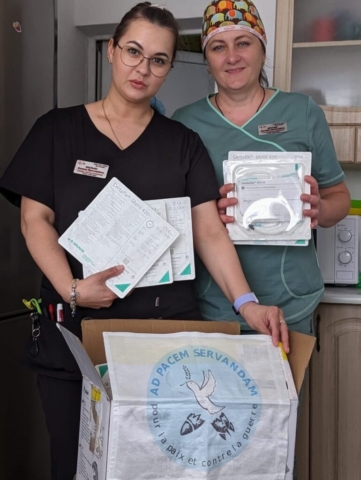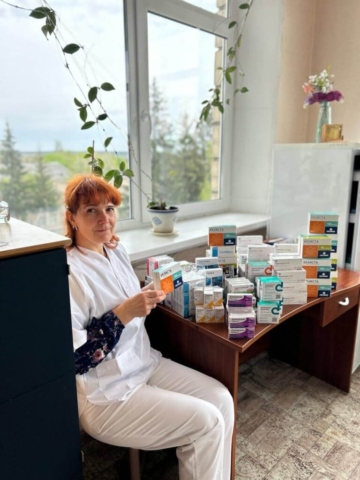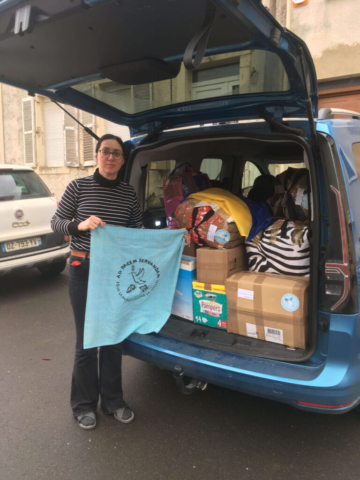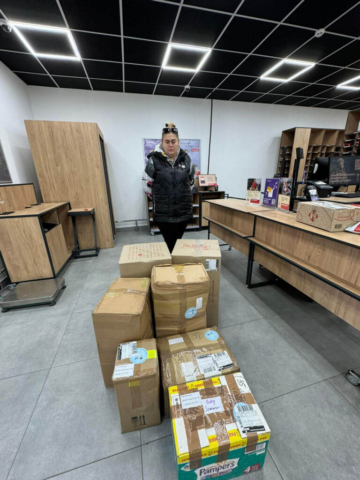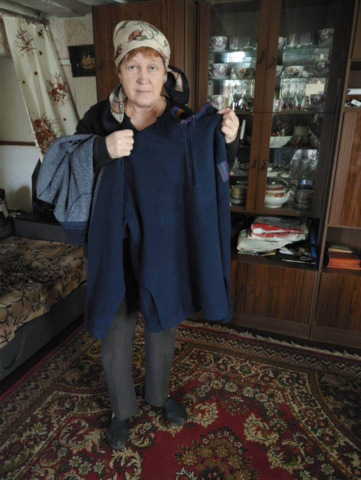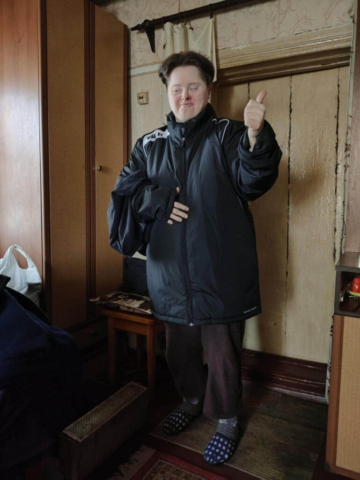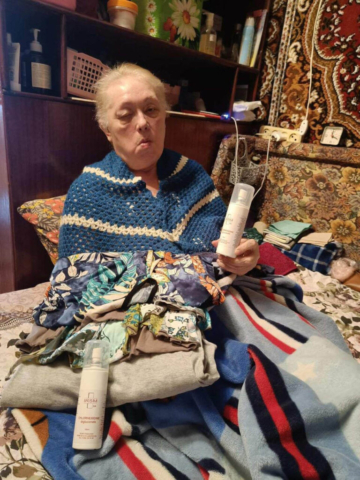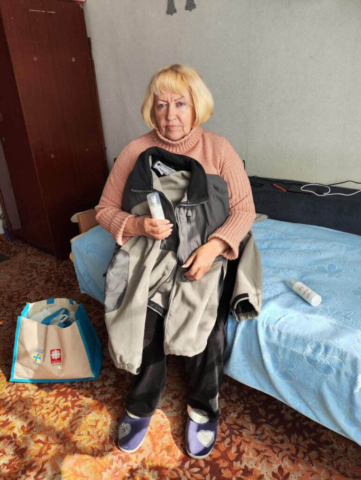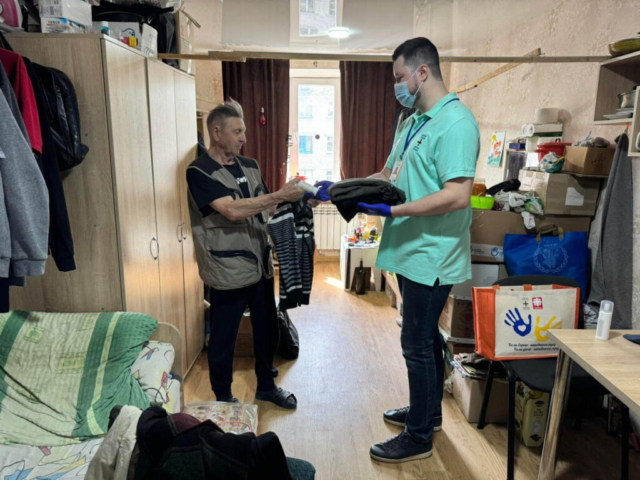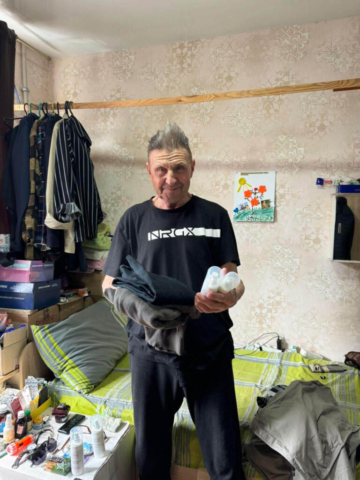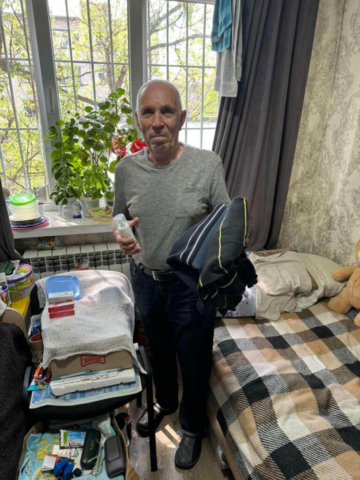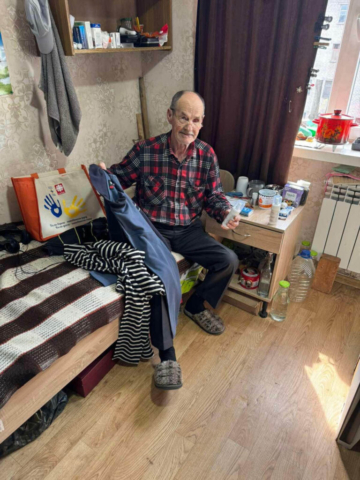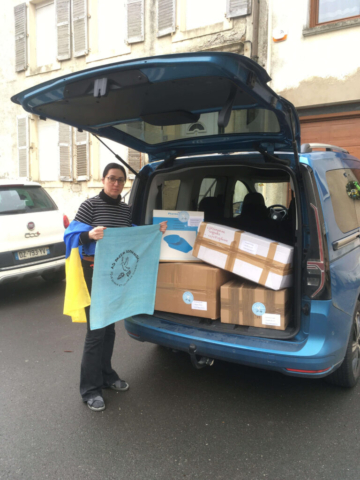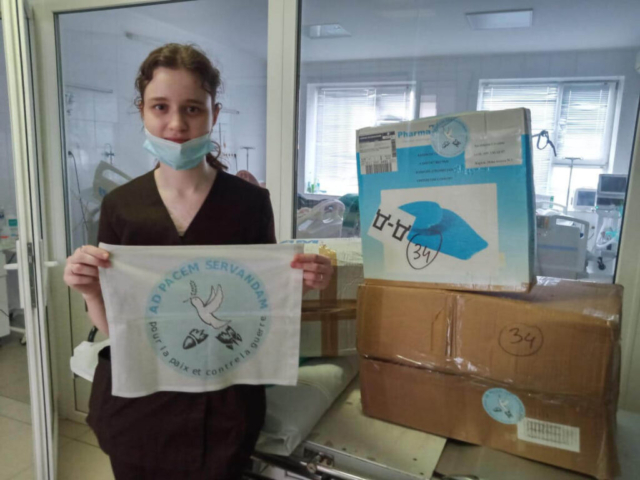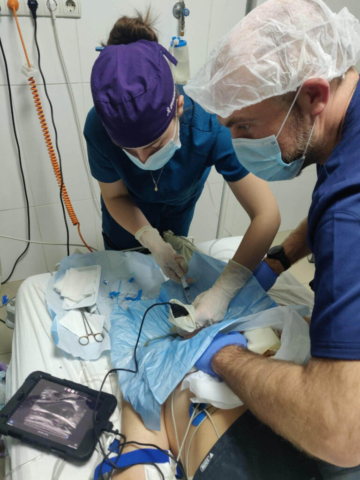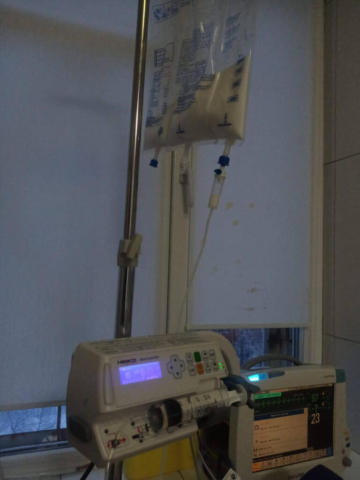A concertino has been organised by the Ad Pacem association in Italy in the town of Serra Sant Abbondio (Province of Pesaro Urbino). Laura, Daniel and Michel Pantaleoni interpreted a number of classical and romantic works. Donations raised went towards the purchase of medicines for the psychiatric hospital in Vorzel, near Kyiv.
Category: Russia’s war against Ukraine
17 July 2024 – Vorzel Hospital
Natalya visits the hospital in Vorzel. On this day, the medicines needed for the therapies and purchased shortly beforehand were handed over. All the medicines purchased were paid for with the proceeds from the sale of the 2024 calendar.
This was followed by a tour of the intensive therapy room, the renovation of which is being financed entirely by Ad Pacem.The work had not yet been completed by mid-July.
15 and 16 July 2024 : Concentration camp “Izolyaziya” in Donetsk
Over these two days, our vice-president Natalya has met three former inmates of the ‘Izolyaziya’ concentration camp in Donetzk, Andrij Kochmuradov, Vitalij Sokolov and Valerij Matjuschenko. This camp is run by the Russian occupation forces in the occupied Donbas. Regular torture is commonplace. Valerij Matjushenko was only released at the beginning of July 2024 as part of the prisoner exchange. As a result of the torture, all three, along with Andrij Kochmuradov’s wife Olena Lazareva, suffer from serious health problems including joint, dental, heart and circulatory problems. They receive financial support from Ad Pacem for medical treatment and the purchase of medicines.
Kochmuradov and Sokolov said that having been in prison caused them major problems when looking for work. Employers are discouraged and resent the fact that they were political prisoners, even though they were later found innocent by Ukrainian courts. Sokolov is now working as a guard, while Kochmuradov is still unemployed.
Letter from Valerij Matjuschenko:
On 15 July 2017, Mr Valeriy Mykolayovych Matyushenko was abducted by agents of the ‘Ministry of State Security’ (FSB) of the so-called Donetsk People’s Republic (DPR). He was sentenced to 10 years in prison and spent 7 years in captivity. He was released in an exchange on 28 June 2024. Here is his story:
‘I, Valeriy Mykolayovych Matyushenko, born in 1965, Ukrainian, resident of Komsomolske, Starobeshevo district, Donetsk region, am married and have one son.
On 15 July 2017, I left my flat to join my wife, who was at the school where our son was enrolled, preparing the class for the next school year.
I opened my car and at that moment I saw a white Volkswagen minibus with a few people inside. As I was about to leave, four men came up to me, handcuffed me and put a plastic bag over my head. They dragged me into the minibus and took me somewhere.
I found myself in a room and was told that I was suspected of spying for Ukraine.
I was in the ‘DPR MGB’ (FSB).
The IZOLYATSIA torture chamber in Donezk. There were many other people in this prison or concentration camp.
I was first thrown into a small room. It had no windows and measured about one metre by two metres. I can’t say how long I was there. There was a light on all the time and there was a surveillance camera. Then I was transferred to the basement. It was cold in the basement. I was given food twice a day, at 7am and 7pm. They gave me boiled cereals without bread.
About three days later, at 2am, I was taken out of the cell and three men started beating me.
I can’t say how long they beat me. Then they dragged me to another basement. There they hooked me up to electric wires and started torturing me with electric shocks. After that, they took me back to the cell. My teeth were knocked out, three ribs were broken and I slept sitting up for over a month.
The beatings continued almost every day. I’ve had an illness since childhood:
I suffer from Tourette’s syndrome, which worsened after the torture. On the nervous side, I developed thyroid problems. Hard work caused an inguinal hernia, which was operated on after my return.
I needed dentures.
After torture and interrogation, I was sentenced by the ‘DPR military court’ to 10 years of strict confinement for spying for Ukraine.
I remained in this ‘isolation’ for ten months. Then I was transferred to the Donetsk pre-trial detention centre. After three weeks in the pre-trial detention centre, I was transferred to high-regime colony no. 32 in Minsk, where I was held until 28 June 2024, when I was released.
On 28 June 2024, I arrived in Kiev by helicopter. I was immediately taken from the airport to the regional hospital, where I stayed for a fortnight. I’ve now been in another hospital for a month to get my disability certificate. I have a lot of problems, including financial problems. I’m asking your association if it’s possible to help me financially to get back into shape and to buy the medicines I need.
Yours sincerely’.
Valery Matyushenko
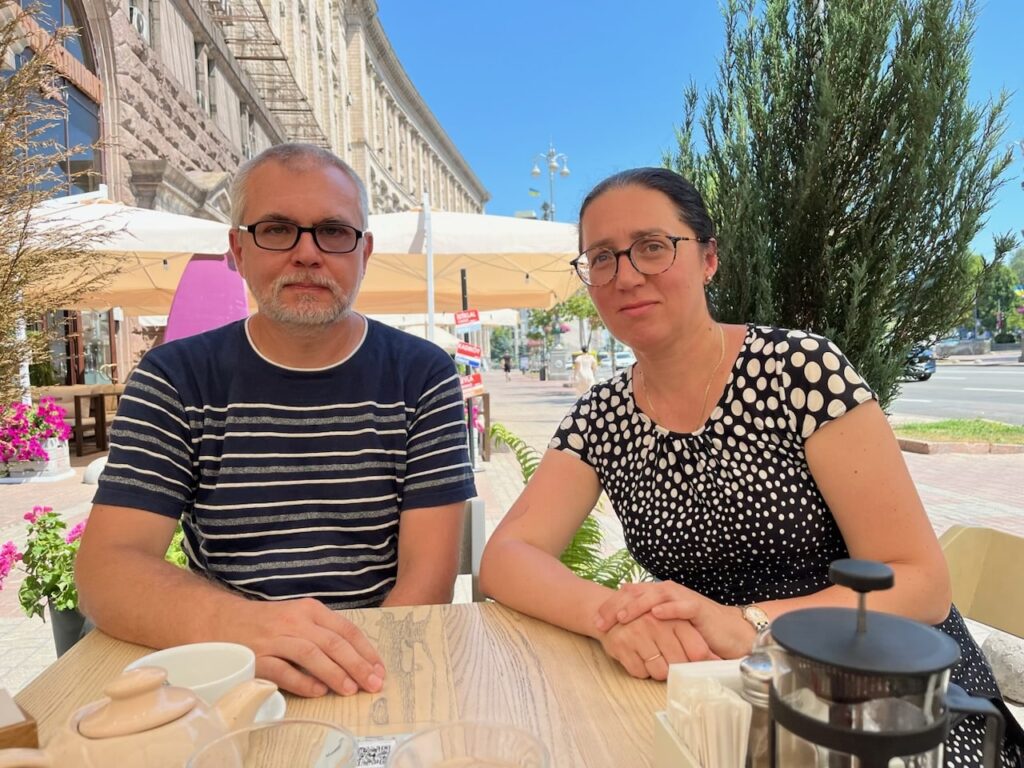
Andrij Kochmuradov 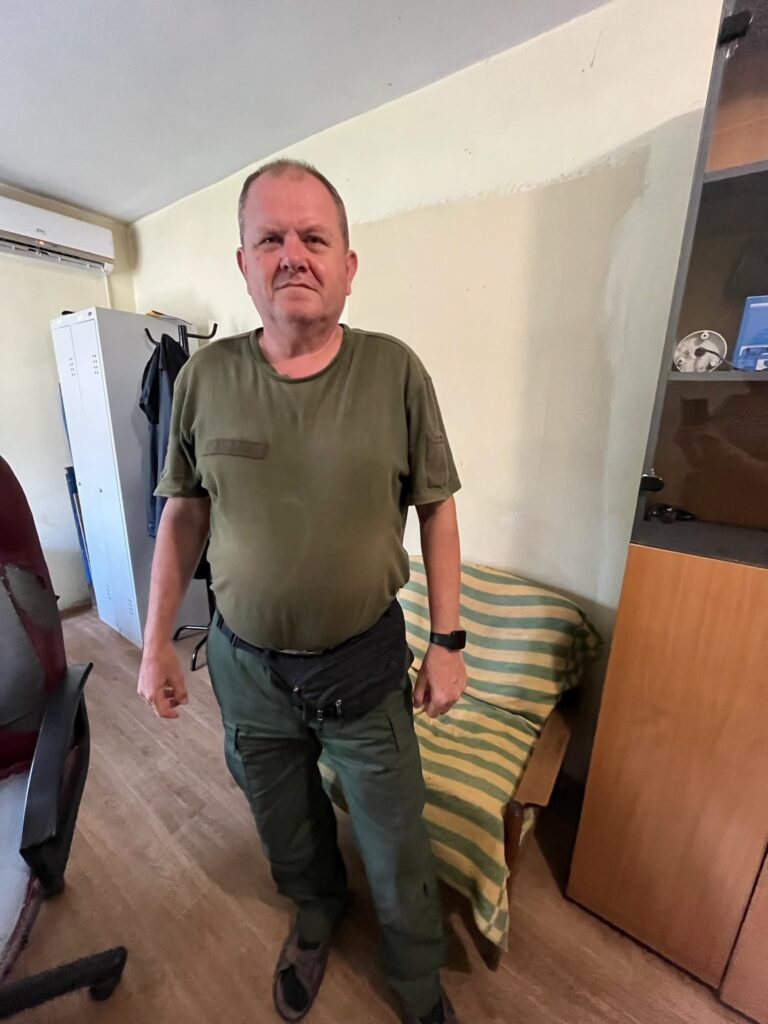
Valery Sokolov 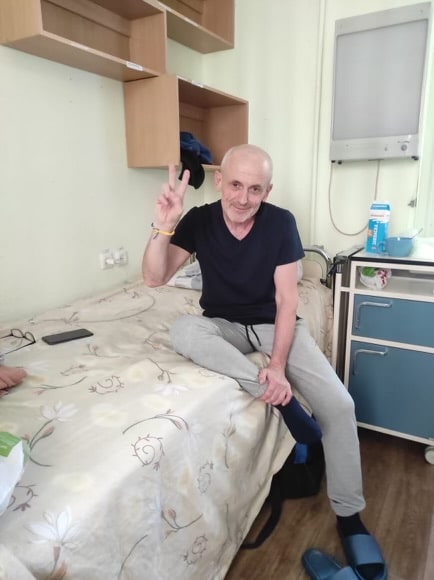
Valery Matuschenko
15 July 2024
9 July 2024 : Misto dobra
Visit of our Vice President Natalya to ‘Misto dobra’ – City of goodness in Chernivtzi.
The pre-planned meeting with the founder of ‘Misto Dobra’ was unfortunately cancelled. The previous day, the ‘Ochmadit’ children’s hospital in Kyiv was hit by a Russian missile. Two children from the ‘Misto Dobra’ home were in there at the time and were about to undergo an oncological operation. The founder, Mrs Marta Levchenko, therefore had to travel urgently to Kyiv. Natalya was able to visit the entire ‘Misto Dobra’ centre with one of Mrs Levchenko’s employees. Many children from evacuated children’s homes in Odessa and Mykolayiv (southern Ukraine) are housed here. The home has rehabilitation rooms for sick and disabled children and a palliative care unit. With financial help from Ad Pacem, tracheostomy and gastrostomy tubes and catheters were purchased here. A computer and monitor were also purchased to monitor the condition of a seriously ill child during transport to hospital.
8 july 2024 – Ivano-Frankivsk Shelter
Visit by our Vice President Natalya to a shelter for mothers and children in Ivano-Frankivsk (Western Ukraine).
Of the 37 women and children currently living in the shelter, three quarters are internal refugees from eastern and southern Ukraine. Among them are also victims of rape by Russian soldiers.
The home mainly provides a home for women who have small children and are unable to pay rent. The women are given work in a chicken farm and the children can go to school and kindergarten. Smaller children are looked after in the home. As soon as the women are financially better off, they rent a flat on their own.. In cases where women and/or their children have illnesses, disabilities or war trauma, their stay in the home is not limited in time.
Due to the constant Russian missile strikes, the Ukrainian energy grid functions very poorly. Electricity is switched off for many hours a day as planned. The purchase of an electric battery station for this home was therefore of paramount importance. Ad Pacem financed the purchase of such a battery station. This was installed in the home at the end of August 2024.

